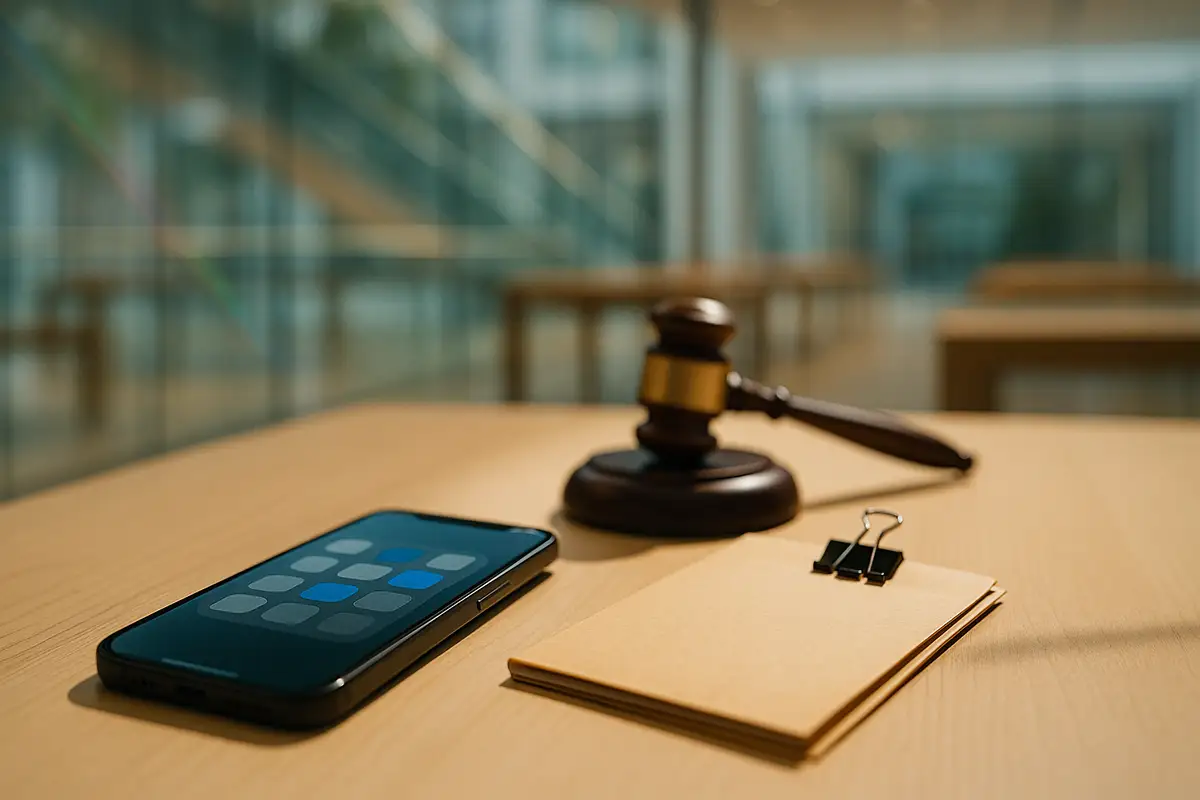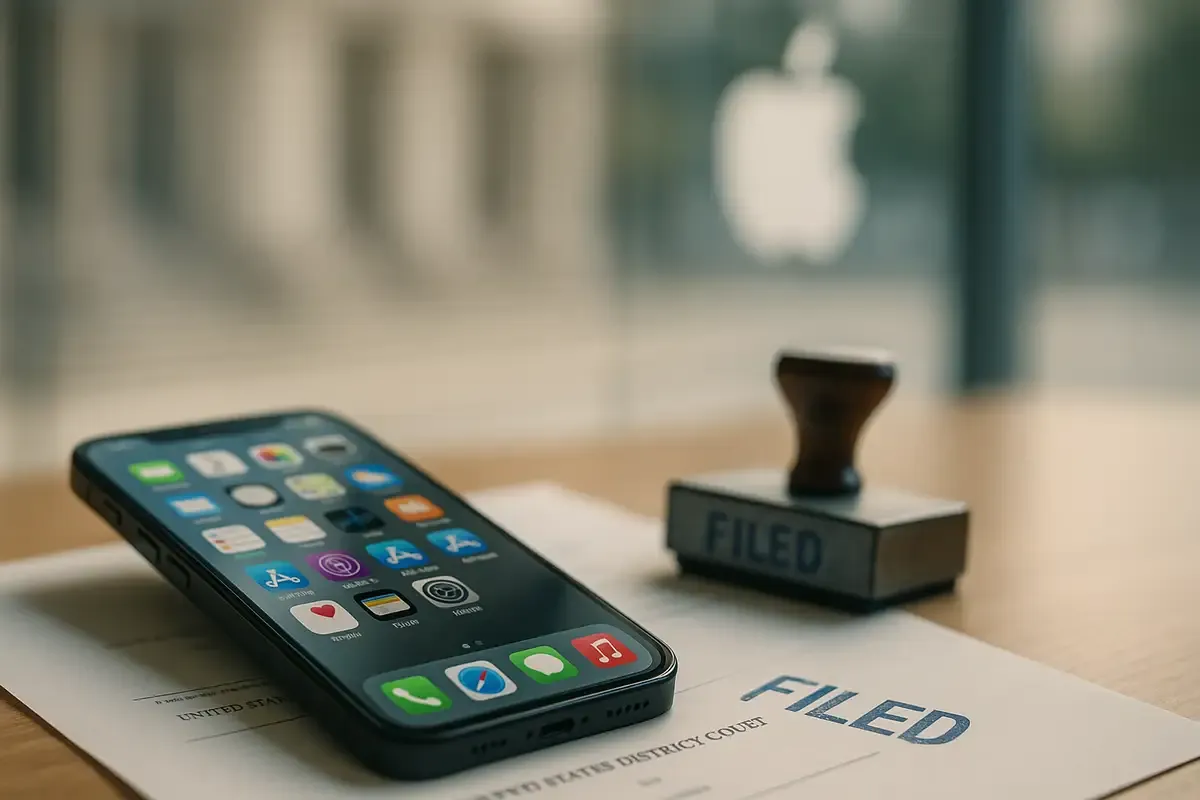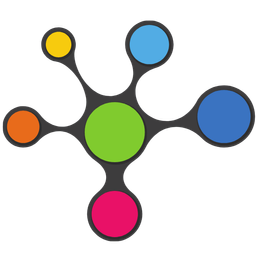💡 TL;DR - The 30 Seconds Version
👉 Musk's xAI and X sued Apple and OpenAI on Aug. 25 in Texas federal court, claiming conspiracy to lock competitors out of iPhone AI access.
📊 Evidence contradicts Musk's claims: DeepSeek hit #1 in January, Perplexity in July, and Musk's own Grok reached #1 for two days in February.
🏭 Legal challenge requires proving unlawful exclusion, not just platform preference—courts need evidence of coercion or discriminatory rules applied unequally.
🌍 AI competition has shifted from model quality to distribution access, with OS-level integration providing massive reach advantages over standalone apps.
🚀 Apple signals openness to multiple AI partners, with executives exploring Google Gemini integration and developer tools supporting Anthropic's Claude.
⚖️ Court ruling could determine whether platform curation plus marquee AI partnerships equals illegal foreclosure, affecting every future AI-phone deal.
A fresh antitrust lawsuit collides with inconvenient data. Elon Musk’s xAI and X sued Apple and OpenAI today in federal court in Texas, alleging a conspiracy to “lock up” AI access on iPhones.
What’s actually new
The complaint argues Apple’s ChatGPT integration makes OpenAI the de-facto default on iOS and that App Store curation depresses visibility for rivals, including Grok and the X app. It claims Apple’s editorial lists and search rankings deprioritize competing chatbots while ChatGPT harvests “billions of prompts” via system-level access. The ask: injunctive relief to halt the alleged collusion and neutralize Apple’s distribution advantage. That’s a big swing.
The filing isn’t happenstance. It lands as Apple’s App Store rules face sustained scrutiny in Washington and Brussels, with regulators still testing the limits of platform gatekeeping. Musk is trying to plug into that momentum. It’s a strategic bet.
The evidence problem
Musk’s core claim—“impossible” for non-OpenAI chatbots to top App Store charts—meets public counterexamples. DeepSeek briefly reached No. 1 on Apple’s App Store in January. Perplexity hit No. 1 in India on July 18. And Grok itself reportedly touched No. 1 for two days in February after Grok-3 went free. Those dates matter.
Apple’s stated position is equally straightforward: the App Store is “designed to be fair and free of bias,” with charts, algorithmic recommendations, and curated lists applying objective criteria. That’s the company line. It will repeat in court.
This doesn’t make Musk’s case impossible. But it blunts the “systematic exclusion” theory. Antitrust cases turn on facts.
The legal hill to climb
U.S. antitrust law distinguishes platform preference from unlawful exclusion. Apple can choose integration partners and curate its store unless plaintiffs prove an illegal agreement or monopolizing conduct that forecloses rivals. Editorial choices and featured lists, by themselves, are a thin reed. Courts want evidence of coercion, exclusivity that blocks practical access, or discriminatory rules applied unequally. That bar is high.
Venue won’t save a weak theory. Filing in the Northern District of Texas may shape pace and posture, but not the elements: market definition, power, conduct, and harm. Expect Apple to argue that rankings are volatile, integration is non-exclusive, and rivals routinely surface in top charts. Expect OpenAI to say iOS access is open and user-driven. Discovery will be contentious.
Distribution, not just model quality
The suit does capture a real shift: AI competition now hinges on distribution. When a model is integrated at the OS layer—invoked by Siri or system share sheets—its effective reach dwarfs any standalone app. Defaults matter. So do on-device permissions, prompt entry points, and cross-app hand-offs. This is the mobile-era lesson applied to AI.
That shift disadvantages labs without platform deals. A purely app-based chatbot competes against an integrated experience that sits one tap closer to the user. It’s structural. The question for courts is whether that structure reflects healthy rivalry or unlawful foreclosure. That’s the frontier.
Apple’s “open to others” signal
Apple has publicly telegraphed interest in multiple model options over time. Executives have said they’re exploring additional integrations, including Google’s Gemini. Recent developer builds point to expanded third-party hooks, with evidence of Anthropic’s Claude support in Xcode’s tooling. None of this concedes Musk’s point; it does complicate his narrative of a closed, permanent pipeline to OpenAI.
If Apple can show credible, near-term pathways for alternative models—whether as user-selectable assistants or developer-level choices—claims of durable exclusivity get weaker. Choice matters.
Limitations and caveats
App Store rankings are snapshots. They vary by country, category, and day. A brief No. 1 run does not prove durable parity; nor does it absolve Apple if internal rules or editorial slots were wielded discriminatorily. Conversely, “exclusive” on-device access is not the same as banning rivals from the store. The case will turn on documentary proof: contracts, ranking signals, editorial criteria, internal communications. Not tweets.
One more complication: both sides practice platform control. Musk criticizes Apple’s gatekeeping while X is accused of algorithmic favoritism and Tesla still declines to support CarPlay. That won’t decide the law. It may color the equities.
The bottom line
Musk is asking a court to treat AI distribution like an access regime, not mere product preference. If he proves collusion or exclusion, the remedy could reshape how models reach iOS users. If he can’t, the case will underscore a harsher reality for non-platform AI firms: distribution is destiny, and defaults win.
Why this matters:
- AI reach is shifting from model merit to default placement, making OS-level integrations the new competitive moat—and raising the stakes for antitrust.
- Courts must decide if platform curation plus a marquee AI partnership equals unlawful foreclosure, a ruling that could ripple across every AI-on-phone deal.
❓ Frequently Asked Questions
Q: Why did Musk file the lawsuit in Texas instead of California where Apple and OpenAI operate?
A: Filing in the Northern District of Texas is likely strategic venue shopping for potentially favorable judges in tech antitrust cases. However, the forum choice won't change the core legal elements Musk must prove: market definition, monopoly power, anticompetitive conduct, and actual consumer harm.
Q: When did Apple's partnership with OpenAI begin and what does it include?
A: Apple announced its OpenAI partnership in June 2024, integrating ChatGPT into iPhone, iPad, and Mac systems. The integration allows Siri to hand off complex queries to ChatGPT and enables system-level access through share sheets, giving OpenAI access to "billions of user prompts" according to Musk's complaint.
Q: Has Musk sued OpenAI before this antitrust case?
A: Yes. Musk maintains separate litigation in California federal court challenging OpenAI's conversion from nonprofit to for-profit status. Musk co-founded OpenAI with Sam Altman in 2015 as a nonprofit before leaving in 2018 over strategic disagreements about the company's direction.
Q: What remedies is Musk seeking if he wins this lawsuit?
A: Musk wants injunctive relief to halt the alleged Apple-OpenAI collusion and neutralize Apple's distribution advantage. This could require Apple to offer equal integration access to competing AI models or change App Store editorial practices that allegedly favor ChatGPT over rivals like Grok.
Q: Are other AI companies besides OpenAI getting similar deals with major platforms?
A: Apple executives have indicated openness to multiple AI partnerships, mentioning potential Google Gemini integration at WWDC 2024. Recent developer builds show Anthropic's Claude support in Xcode tools. However, no other AI company has achieved the same system-level iPhone integration that OpenAI's ChatGPT currently enjoys.











